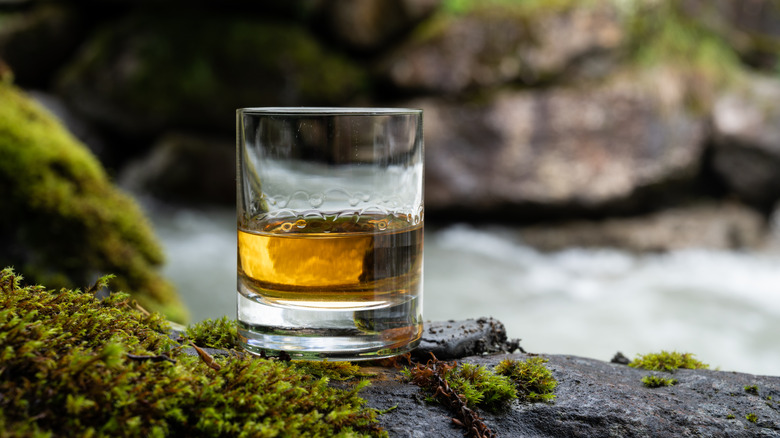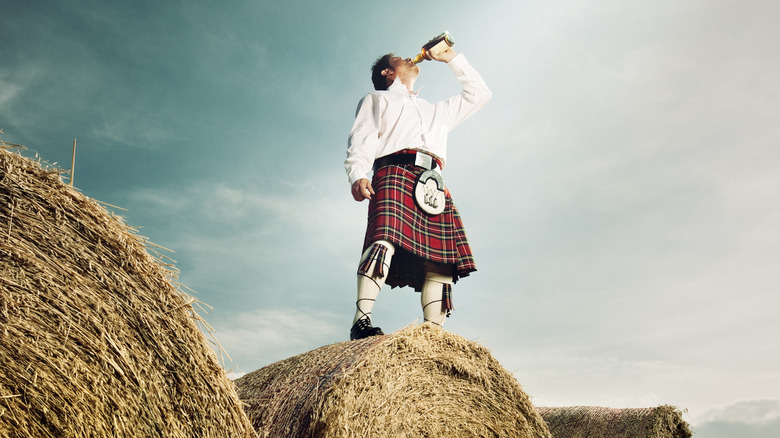Where Did The Word 'Whiskey' Actually Come From?
Etymology can tell us a lot about where everyday things come from. Whiskey is an interesting one because it doesn't resemble most other English words and it even has a unique pronunciation that is simultaneously harsh and lilted. That's because whiskey is the anglicized version of the Gaelic term "uisge beatha," which is itself a localization of the Latin "aqua vitae," both of which translate as "water of life."
Alcohol is thousands of years old, but aqua vitae only became possible after distillation was invented. Some form of distillation had been known beforehand, but distillation as we know it today didn't start until the great Arab alchemist Abu Musa Jabir ibn Hayyan designed the alembic pot still in the 8th century. It would be several hundred years before distilled alcohol was drunk for pleasure, but aqua vitae quickly became a medicinal staple throughout the Middle East and Europe.
The first record of whiskey dates to the Scottish Exchequer Rolls of 1495, in which Friar John Cor ordered eight bolls of malt (a boll is four bushels) by order of King James IV to make aqua vitae. The inclusion of malt (shorthand for malted barley) is what gives away this important event as the first record of whiskey production. Aqua vitae was a generic term for all distilled spirits regardless of ingredients, so it's possible that some earlier reference to aqua vitae is actually referencing whiskey, but there's no way for us to know. The Scottish Exchequer Rolls account is unambiguous.
A glass of uisge
Aqua vitae made with malted barley grew out of the Gaelic countryside, though Ireland and Scotland both claim original ownership. The world may never know the truth of that detail, but the region as a whole is considered whiskey's birthplace. As we mentioned, Scottish Gaelic translated the Latin aqua vitae as uisge beatha. Through everyday speech, that was shortened to just uisge, which eventually morphed into the English word whiskey.
Although the story of whiskey is unique to the Celtic region, it has a lot in common with the history of other spirits. As aqua vitae spread across Europe, each region drew from its agricultural industry to explore distillation. In France, wine was popular, and vineyards comprised a significant percentage of the farmland. It's no surprise then that brandy first came out of France since it often uses grapes as its base ingredient. In Scotland, medieval agriculture consisted of grains in no small part, including barley, rye, and wheat — all of which can be used in whiskey distillation.
Scottish Gaelic is a beautiful language that's still used today, though there are only around 60,000 people currently alive who can speak it. An indigenous language of Scotland, the Scottish government has taken several steps to support the use of Scottish Gaelic in modern life in the hopes that it will one day thrive again.

